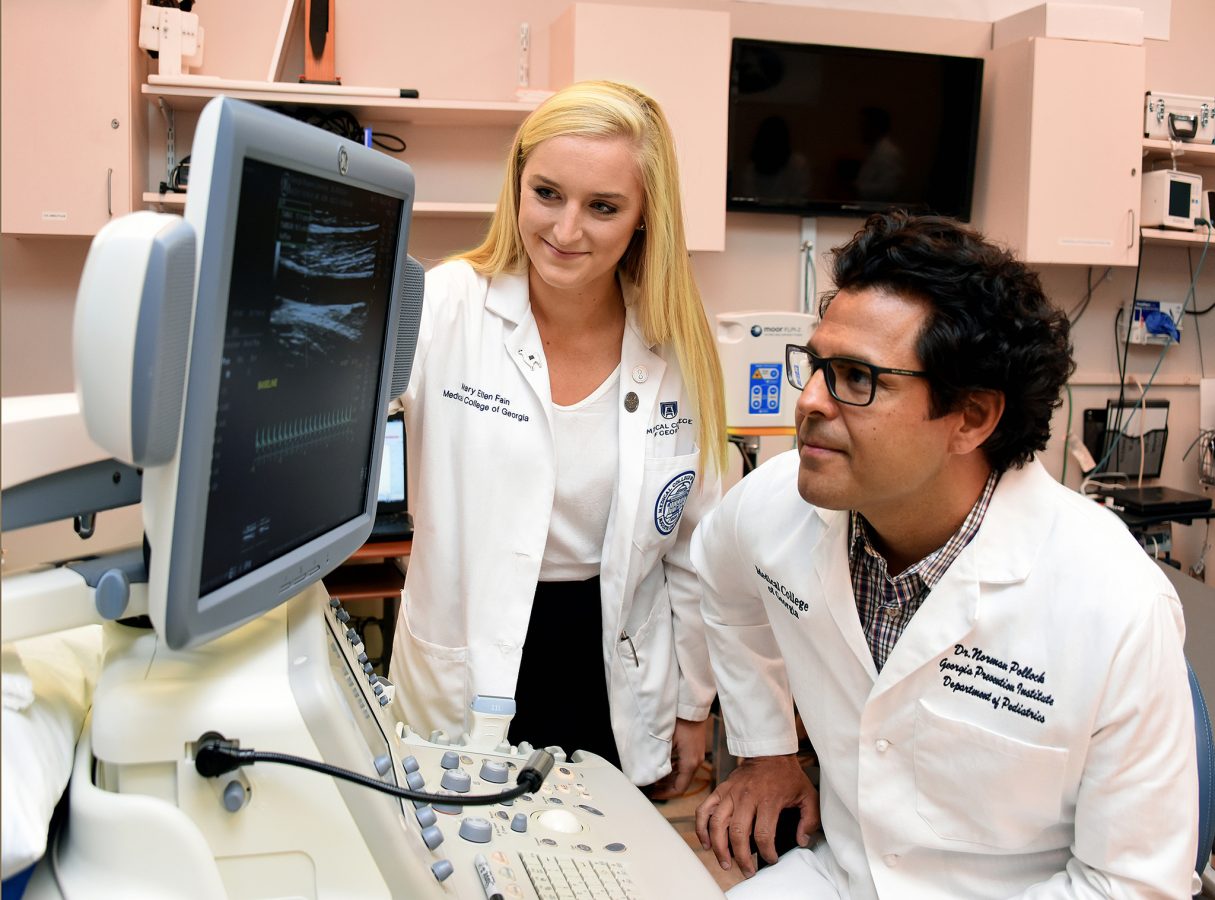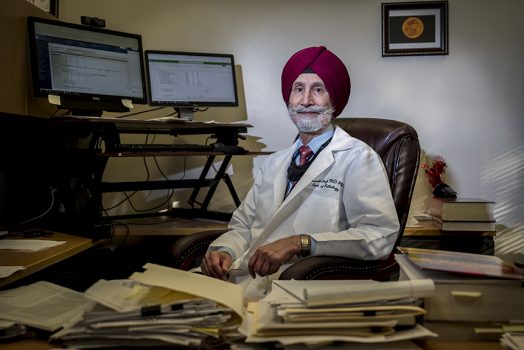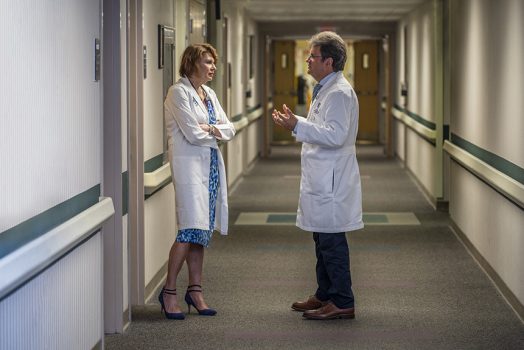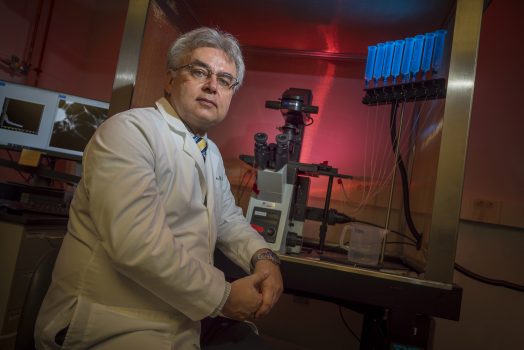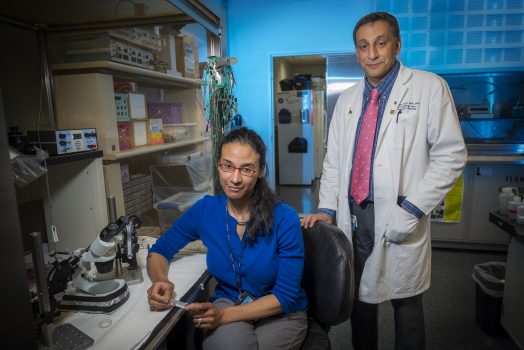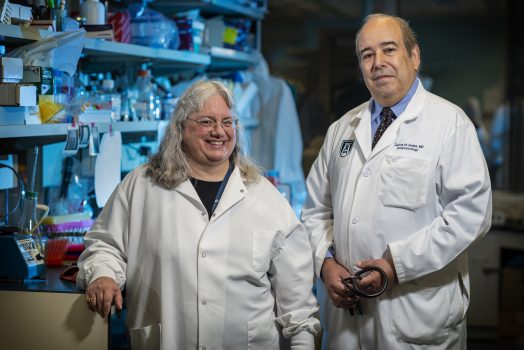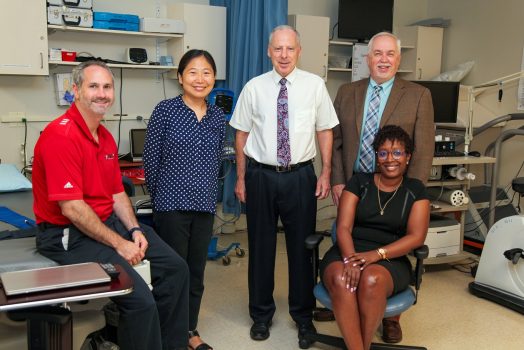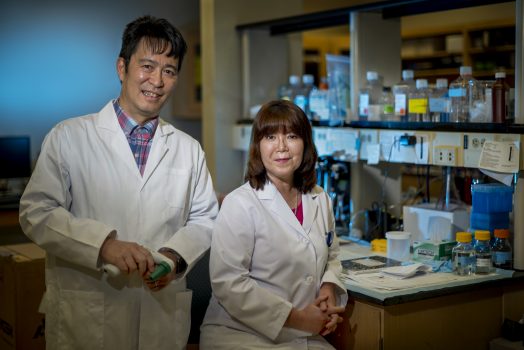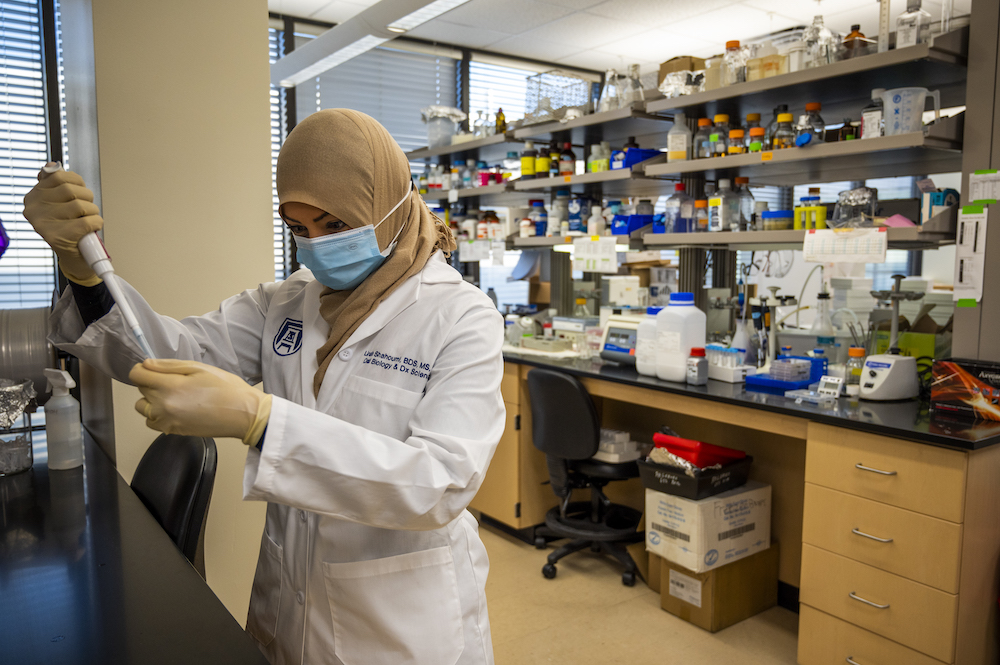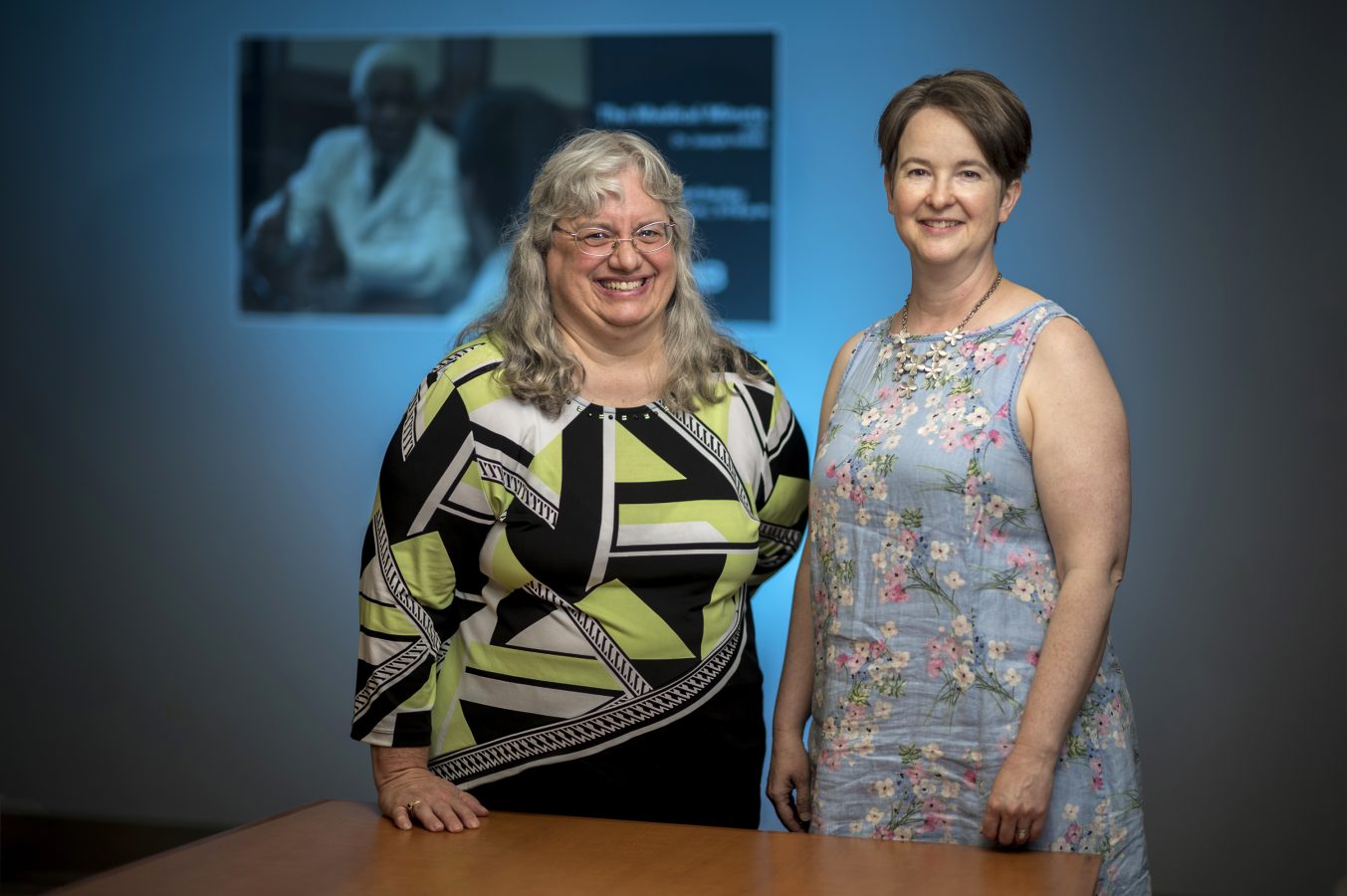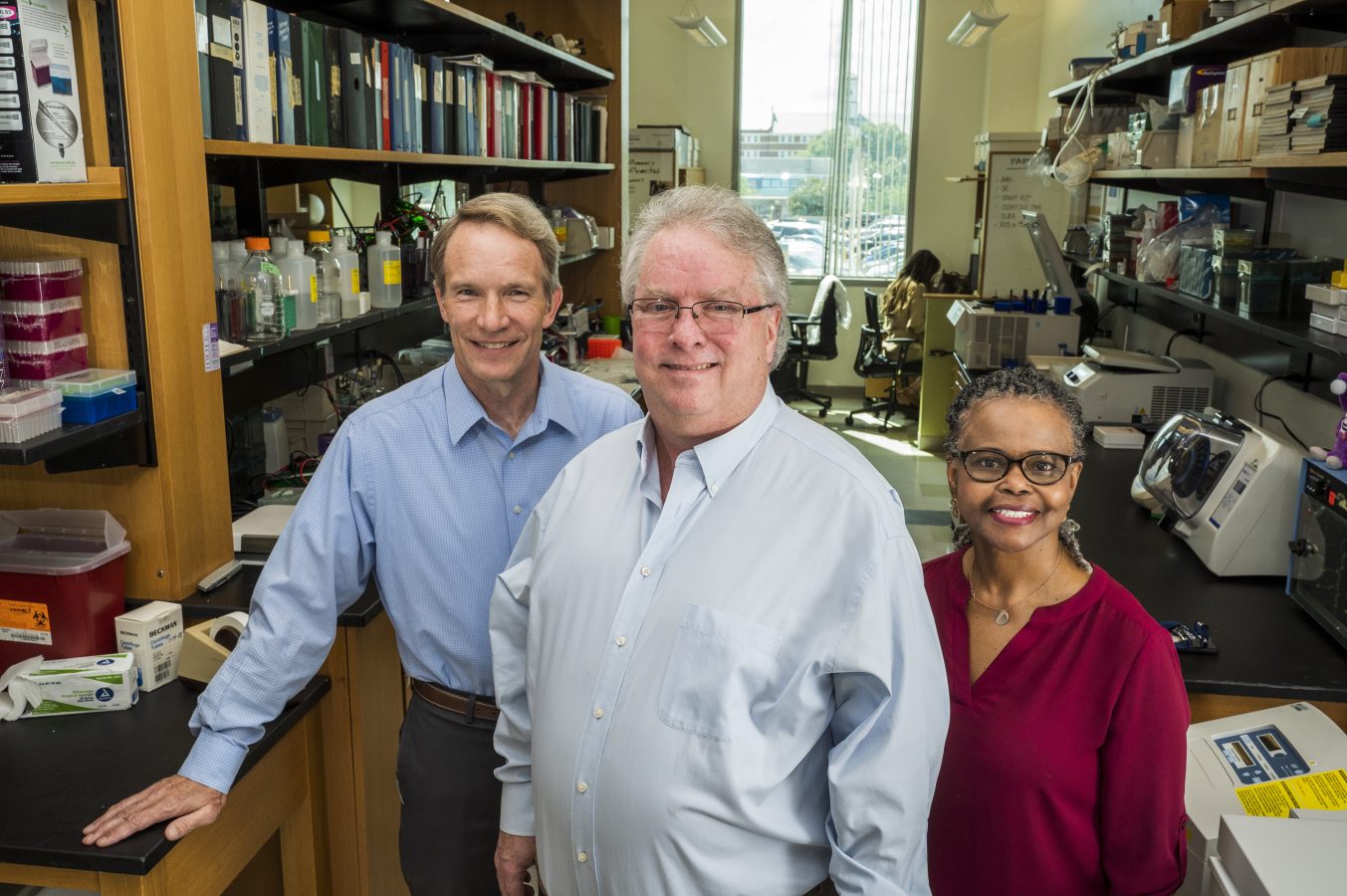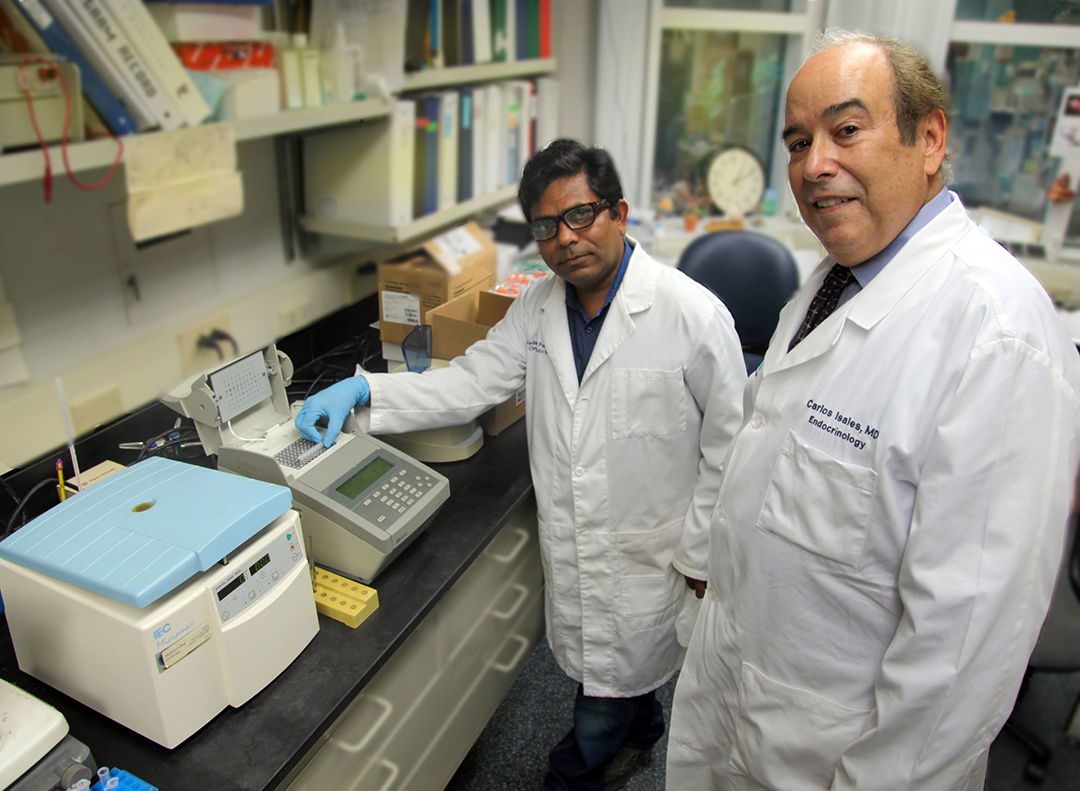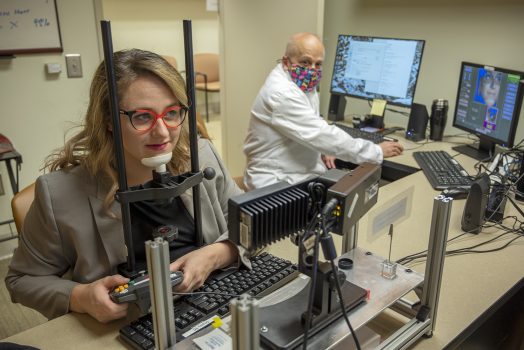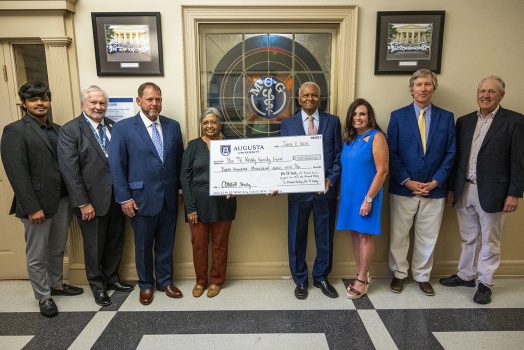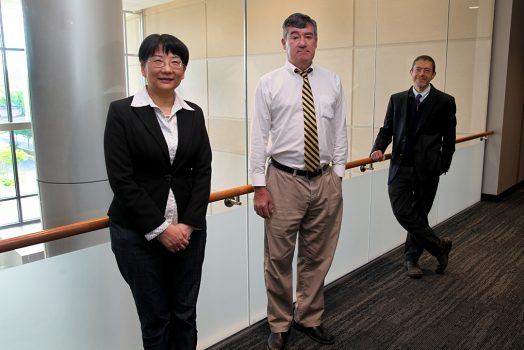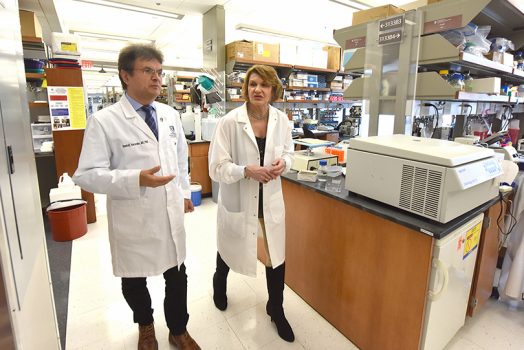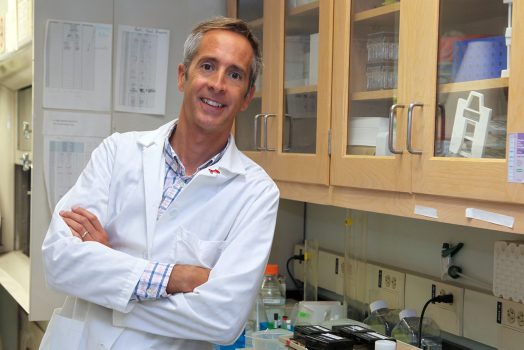Nearly 20% of patients with multiple myeloma have a form in which they make extreme quantities of one component of the abnormal antibody they are producing, and these so-called...
A “humanized” mouse model equipped with the immune system of a patient who needs an organ transplant beats current measures for identifying the best potential living donor...
A survey of mostly African American adults living in and around one of Georgia’s largest cities found that COVID-19 vaccine hesitancy was greatest among those age 18 to 29...
In one type of a rare, inherited genetic disorder that affects control of body movement, scientists have found a mutation in an enzyme impairs communication between neurons and...
Beige fat cells, which are typically intermingled with white fat cells in the subcutaneous fat present on “pear shaped” people, mediate subcutaneous fat’s brain protection...
Summer research program aims to encourage more medical students to consider a career in aging research and clinical care — especially important with the world's rapidly aging...
Cardiovascular disease and cancer, the nation’s top two killers, share common ground like obesity and chronic inflammation, as well as a disproportionate impact on Black Americans...
An internal transporter that enables us to use the copper we consume in foods like shellfish and nuts to enable a host of vital body functions also has the essential role of...
Dr. Laura Williamson, director of the Center for Bioethics and Health Policy at Augusta University, studies the ethical impact of mandating childhood vaccinations.
Currently, an estimated 1.4 million Georgians are 65 and older, but that number is expected to jump significantly over the next decade. Augusta University is focused on a three...
Psoriasis treatment, which likely helps restore the natural frontline barrier protection of the skin, reduces infection rates and improves survival for people on dialysis...
Dr. Richard A. McIndoe, bioinformatics expert and associate director of the Center for Biotechnology and Genomic Medicine at the Medical College of Georgia, is leading a $6.2...
In a normally reciprocal relationship that appears to go awry with age, sufficient tryptophan, which we consume in foods like milk, turkey, chicken and oats, helps keep our...
A plant-based diet appears to afford significant protection to rats bred to become hypertensive on a high-salt diet, scientists report. When the rats become pregnant, the whole...
MCG researchers can train civilians to "break" camouflage in less that one second. Now they want to know if they're breaking camouflage or simply sensing something is amiss...
Several community leaders have committed $300,000 to help continue to fund a Medical College of Georgia study examining the long-term neurological impact of COVID-19.
Being unable to get time off from work and being “nervous” about seeing a health care provider were among many cited reasons for not always getting timely survivorship care...
Looking to improve organ transplant success, researchers are working to learn more about how an immune molecule, which also protects a fetus, helps protect some transplanted...
Dr. Hedong Li is principal investigator on a two-year, $423,000 Exploratory/Development Research grant from the National Institutes of Health that is enabling his team to use a...
Younger and younger women are getting cardiovascular disease. Why? Their salt sensitivity and obesity have caused them to lose the natural protection youth and estrogen provide...
 Augusta University
Augusta University
